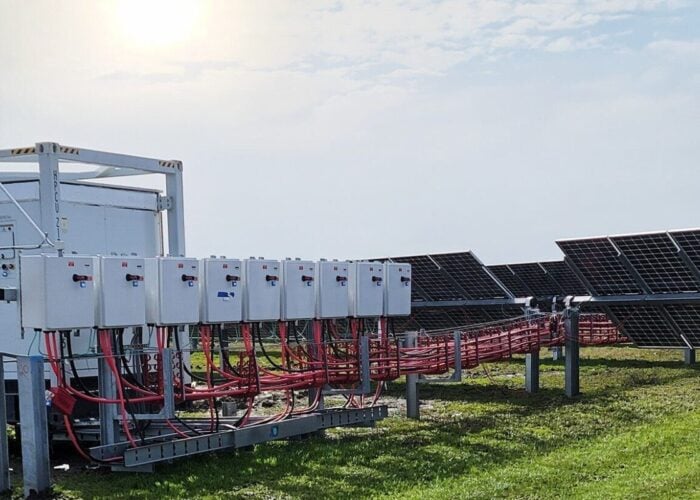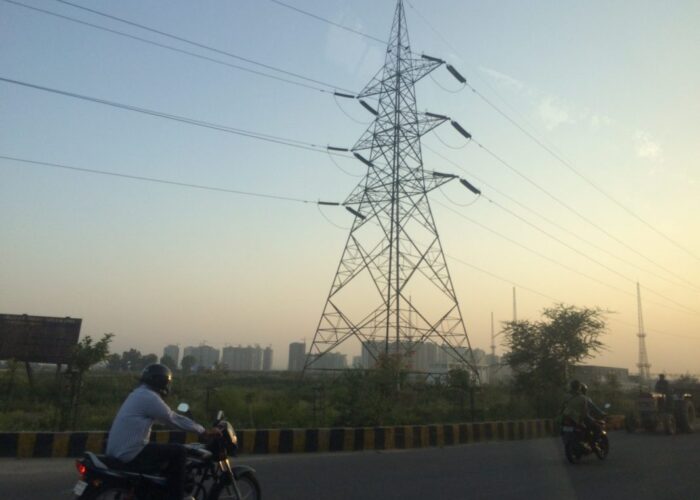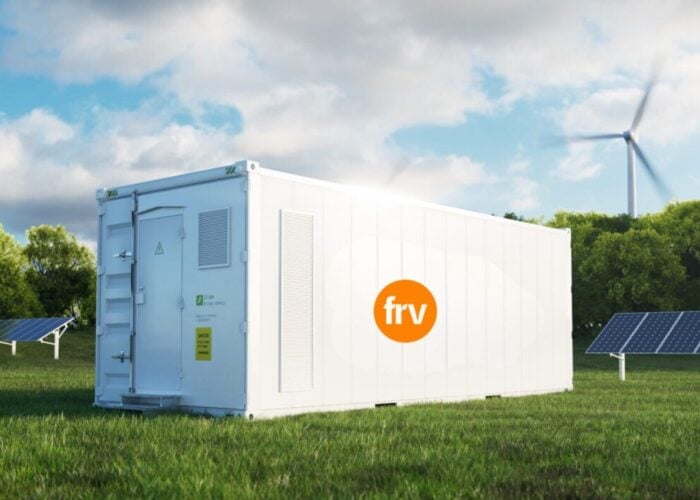A Pakistan PV wholesaler has told PV Tech the country’s nascent solar industry could face “total collapse” unless a tax on imported solar equipment is lifted.
Last week it emerged that the imposition of a 30% tax had led to an estimated 70 containers of solar panels becoming stranded at the port of Karachi, Pakistan, with estimates that up to 50MW will be stranded by the end of July.
Try Premium for just $1
- Full premium access for the first month at only $1
- Converts to an annual rate after 30 days unless cancelled
- Cancel anytime during the trial period
Premium Benefits
- Expert industry analysis and interviews
- Digital access to PV Tech Power journal
- Exclusive event discounts
Or get the full Premium subscription right away
Or continue reading this article for free
Talking to PV Tech, Usman Ahmad, director at Karachi-based solar system wholesaler, Nizam Energy, said the tax was “a very shocking and unexpected decision from the government” that was “bringing the entire local industry to a standstill”.
Ahmad said that last year solar imports into Pakistan totalled 300MW and were expected to “increase drastically.”
However the recent tax announcement may lead to a “total collapse” of the new industry, as module prices are expected to rise by over 35% with the new policy, added Ahmad.
According to local reports, the tax for the imported containers has gone from zero, to as much as PKR5.5 million (US$55,000) in owed tax per container. The tax could add up to a 35% increase on panel prices.
Currently Pakistan has only two domestic solar panel manufacturers with a combined capacity of 5MW a year, but they lack international certifications and are also “notorious for using substandard components”, said Ahmad.
There are also no solar inverter or deep cycle battery manufacturers.
To meet demand, domestic manufacturers would need rapid investment in capacity and machinery of international standards. Local capacity building “needs to be encouraged, but with proper planning”, said Ahmad.
Pakistan's new Financial Act 2014 came into force 1 July, implementing the 30% tax policy for solar panel imports that were previously exempt from the duties because of their importance in combating Pakistan’s energy crisis.
Ahmad said that Pakistan is facing more than 12-16 hours of power cuts a day, and solar is “providing alternative energy which is widely being adopted in residential, agricultural and industrial installations”.
With the tax added, the entire industry and its end users “have been thrown into a tail spin”, said Ahmad.
Previously, the government pushed solar projects to meet urgent energy demands, with an estimated shortage of 6GW, and energy demand growing 8% a year.
The government had allowed duty free import on not just solar panels, but also batteries and inverters to meet the energy short fall in the summer months when Pakistan’s peak energy requirements exceed 18GW, but generation capacity can only meet 12GW, said Ahmad.
“Solar systems with batteries are an integral part providing relief to customers during these difficult times of inconsistent power,” Ahmad said.
Risk of undermining solar's progress
The Pakistani government has implemented various recent measures to encourage solar, such as scrapping import duties for solar panels, inviting energy and infrastructure investment from China, introducing a feed-in tariff and building up a 700MW-plus PV pipeline. These were supposed to be in line with a pledge made by Nawaz Sharif, the pro-solar prime minister elected last year, to end the energy crisis by the end of his five-year term.
The government “has done a commendable job so far in encouraging solar in Pakistan”, said Ahmad.
But with the tax, he added that the government “has made a very un-calculated decision by imposing customs duty”.
The unexpected tax announcement also “sends very conflicting messages” to international investors who are looking towards Pakistan since the feed-in-tariff was announced, he added.
The importance of the timing of the tax is also unfortunate, as Pakistan finalises plans for its 1GW mega-solar park, the Quaid-e-Azam (QA) solar park.
The new tax policy will drastically affect international investors the government has been “aggressively wooing” to invest in the QA solar power project, says Ahmad.
Unexpected decisions can have “a detrimental effect and derail the entire progress made, and need to be avoided especially when [the government] are being lobbied”, said Ahmad.
Ahmad claimed the reasoning behind the sudden change was down to “a manufacturer with political affiliations, who has lobbied government for vested interests.”
The government has made changes without “realising the consequences, or an understanding of solar or the market size”, he said.
Local reports from Custom Today in March suggest that complaints had been made by customs officials over the alleged misuse of the tax exemption by importers.
According to The News Pakistan’s Engineering Development Board (EDB) proposed an end to the tax exemption, but quoted a source from AEDB claiming the latter was not informed of any changes.
Ahmad said a meeting was conducted with solar importers and officials of AEDB and EDB, but the government had not taken the recommendations of AEDB, meaning prior to making the decision the government “had no clue” on the market size or 5MW capacity availability of local manufacturing.
AEDB is the only government body that should have had the final say in this decision, and officials “were amazed” as to why they were not consulted on the decision, said Ahmad.
AEDB previously warned the government of the lack of local capacity and standards in meeting existing demand.
The government has been advised strongly from industry and AEDB to provide immediate relief for the stranded solar imports.
Atta-ur-Rahman, Pakistan’s former technology minister and a leading scientist told PV Tech last week: “This is a wrong policy decision by the government. They should have made it tax free and offered a 30% subsidy on import of solar panels.”






